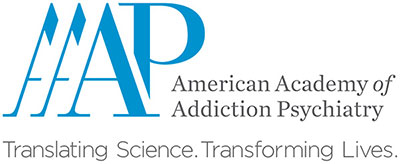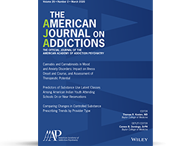 Rancho Bernardo Inn
Rancho Bernardo Inn17550 Bernardo Oaks Dr
San Diego, CA 92128
Symposium I: Rapid Initiation of MOUD in Acute Care Settings: Findings from the SWIFT and ED-INNOVATION trials from the NIDA Clinical Trials Network (CTN)
Chairperson: Matisyahu Shulman, MD, Clinical Researcher
Co-Chair: Udi Ghitza, PhD, Health Scientist Administrator and Scientific Officer at the National Institute on Drug Abuse (NIDA) Center for the Clinical Trials Network (CCTN)
Presenters: Matisyahu Shulman, MD, Psychiatrist II, New York State Psychiatric Institute-CUMC; Adam Bisaga, MD, Professor of Psychiatry at Columbia University Irving Medical Center, and a Research Scientist at New York State Psychiatric Institute; Miranda Greiner, MD, MPH, Addiction Psychiatrist and a NIDA-funded T32 Research Fellow in Substance Use Disorders at Columbia University Irving Medical Center and New York State Psychiatric Institute; and Gail D’Onofrio, MD, MS, Albert E. Kent Professor of Emergency Medicine, and Professor of Medicine and Public Health at Yale School of Medicine
Discussants: Marc Fishman, MD, Addiction Psychiatrist, Maryland Treatment Centers / Mountain Manor; and Edward Nunes, MD, Professor of Psychiatry at Columbia University Irving Medical Center and Research Psychiatrist at New York State Psychiatric Institute
Despite effective medications for opioid use disorder (MOUD), most people with opioid use disorder (OUD) are not on one of the effective medications that protect against the risk of relapse and overdose. The opportunity to increase the uptake of MOUD exists across the continuum of care, including inpatient substance use disorder treatment units and emergency departments, settings where numerous people with opioid use disorder are seen, affording a “reachable moment” where MOUD can be initiated. This symposium will present data from two multisite trials, conducted in the NIDA Clinical Trials Network, focused on expanding MOUD use: CTN-0097, the SWIFT trial, conducted on inpatient substance use disorder treatment units and focused on the initiation of extended-release injection naltrexone, and CTN 0099, the ED-Innovation trial, conducted in emergency departments and focused on initiation of either sublingual or extended-release injection buprenorphine. These trials had a strong implementation focus and provide important clinical guidance and lessons learned around how to rapidly initiate MOUD in these acute clinical settings.
SWIFT and ED-INNOVATION, also present an opportunity to explore the impact of fentanyl on buprenorphine induction. It is becoming extremely common for fentanyl to be found in illicit opioid supplies and anecdotal reports suggest that fentanyl-using individuals have greater difficulty initiating treatment with buprenorphine. Providers are seeking guidance on buprenorphine initiation in patients who are using fentanyl. Data will be presented on withdrawal symptoms during initiation of buprenorphine, comparing withdrawal between those with and without fentanyl use.
Learning Objectives
- Be able to explain the rapid procedure for XR-naltrexone induction.
- Understand implementation considerations for ED based buprenorphine induction.
- Describe the clinical factors associated with successful induction in fentanyl positive individuals.
Symposia II: Alcohol and Addiction Psychiatry – Where Are We Now?
Chairperson: Laura Kwako, PhD, Chief of the Treatment, Health Services, & Recovery Branch (THSRB) in the Division of Treatment and Recovery at the National Institute on Alcohol Abuse and Alcoholism
Presenters: George F. Koob, PhD, Director of the National Institute on Alcohol Abuse and Alcoholism (NIAAA), Senior Investigator at the Intramural Research Program of the National Institute on Drug Abuse; Brett Hagman, PhD, Program Director of the Treatment, Health Services, and Recovery Branch at the National Institute on Alcohol Abuse and Alcoholism; and Nancy Diazgranados, MD, MS, Deputy Clinical Director of the National Institute on Alcohol Abuse and Alcoholism (NIAAA)
This symposium will present NIAAA’s broad perspective on the intersection of Addiction Psychiatry and alcohol use, misuse, and alcohol use disorder (AUD). The first presentation will describe the public health burden of AUD, highlighting the enormous treatment gap between those individuals who could benefit from treatment for AUD and those who receive treatment. It will focus on the ramifications of the treatment gap, underlying drivers of AUD, and outline positive developments in attempts to reduce the public health burden of AUD. The second presentation will focus on NIAAA’s definition of recovery from AUD, developed with input from researchers and clinicians, and consider practical ways this definition may be useful for healthcare professionals. The definition views recovery as a process and identifies two key alcohol-related outcomes: 1) cessation from heavy drinking; and 2) remission from DSM-5 AUD. The third presentation addresses the topic of heterogeneity within individuals with AUD and assessments of individual neurobiology with the goal of improving patient outcomes and will present data collected as part of NIAAA’s Addictions Neuroclinical Assessment (ANA) initiative, which focuses on three neuroscience-based functional domains relevant for addiction. Finally, the last presentation provides information on the Healthcare Professional’s Core Resource on Alcohol, an NIAAA-developed website with foundational knowledge on various topics related to AUD and patient care and additional resources for practicing clinicians.
Learning Objectives
- Identify major causes of the alcohol treatment gap and health outcomes related to alcohol misuse.
- Define the new NIAAA recovery definition and describe clinical implications of this definition.
- Describe the three neurofunctional domains included in the Addictions Neuroclinical Assessment and their corresponding brain circuits.
Symposium III: Innovations in Telehealth for Opioid Use Disorder Treatment: Enhancing Access and Quality of Care
Chairperson: Lewei (Allison) Lin, MD, MSc, Associate Professor and Director of the Addiction Psychiatry Fellowship Program at University of Michigan Medical School and Research Scientist at VA Ann Arbor Healthcare System
Presenters: Arthur Robin Williams, MD, MBE, Chief Medical Officer and Physician co-founder of Ophelia Health Inc.; Eric Weintraub, MD, Director of division of drug and Alcohol Abuse, University Of Maryland, School Of Medicine; and Judy Griffin, MD, Director of Research at REACH (Respectful, Equitable Access to Compassionate Healthcare) Medical
The COVID-19 pandemic precipitated a rapid expansion in telehealth-delivered care which is likely to leave a permanent mark on how opioid use disorder (OUD) care is delivered. Policymakers are currently debating what telehealth policies for OUD should look like in the future with recently proposed regulations by the DEA requiring changes to what has been allowed during the public health emergency. This symposium aims to inform clinical practices and policy debates on improving access and quality of OUD care in the era of fentanyl amid a changing regulatory landscape. Leaders in the addiction field will present their recent research and build on prior studies to describe evidence on effectiveness of telehealth models for OUD care, recent policy changes and how they may impact telehealth for OUD care, and examples of new innovative telehealth models implemented in different settings to improve OUD care access and quality. This presentation will include perspectives from a diverse group of clinician scientists who practice in settings from the Veterans Health Administration, to academic centers, to telehealth companies and from specialty addiction settings to treatment integrated in primary care. Throughout all settings, we focus on considerations for evidence-based OUD care, including implementing harm reduction approaches and lowering treatment barriers. This symposium will provide critical research evidence and clinical insights to help the audience determine what constitutes high quality telehealth care for OUD and innovations needed in our field to address disparities in access to high quality OUD care.
Learning Objectives
- Recognize key changes in federal regulations and guidance in the setting of COVID-19, how they are evolving, and what they mean for tele-OUD practices.
- Describe the impacts of COVID-19 on telehealth and in-person OUD treatment and the evidence on telehealth (phone and video) compared to in-person care on patient outcomes.
- Describe different models of telehealth and clinical considerations when using different models, including tailoring for patient clinical presentation and treatment resources.
Symposium IV: Behavioral Addictions in 2023: Clinical Considerations Relating to Gambling, Gaming, Sex, Digital Technologies and Other Behaviors
Chairperson: Marc Potenza, PhD, MD, Albert E. Kent Professor of Psychiatry, Child Study and Neuroscience at the Yale University School of Medicine, Director of the Division on Addictions Research, the Center of Excellence in Gambling Research, the Women and Addictive Disorders Core of Women’s Health Research at Yale and the Yale Research Program on Impulsivity and Impulse Control Disorders
Presenters: Marc Potenza, PhD, MD, Albert E. Kent Professor of Psychiatry, Child Study and Neuroscience at the Yale University School of Medicine, Director of the Division on Addictions Research, the Center of Excellence in Gambling Research, the Women and Addictive Disorders Core of Women’s Health Research at Yale and the Yale Research Program on Impulsivity and Impulse Control Disorders; Mateusz Gola, PhD, Associate Professor at the Institute of Psychology of the Polish Academy of Sciences and the Institute for Neural Computation at the University of California in San Diego; and Shane Kraus, PhD
Views regarding which behaviors constitute a focus of an addiction has changed over time. Although in the 1980s a prevailing view was that addiction could be defined as compulsive drug use, more recent considerations have included a broader range of behaviors. Proposed core features of addictions (continued behavioral engagement despite adverse consequences, compulsive engagement, diminished or lost control, and appetitive urges or craving states) suggest that certain behaviors outside of the realm of drugs may be addictive. Consistent with this notion, the DSM-5 and ICD-11 have grouped together specific disorders due to addictive behaviors (gambling and gaming disorders) together with substance use disorders. This symposium will address current considerations regarding behavioral addictions. Information on the DSM-5 and ICD-11 definitions, epidemiology, biology, screening and treatment will be presented. In addition to gambling and gaming behaviors and disorders, additional behaviors (relating to sex including pornography use and general and specific forms of internet use) will be considered. Information will provide attendees with current clinically relevant knowledge about behavioral addictions and how to identify these concerns and treat people experiencing them.
Learning Objectives
- Appreciate how nomenclature systems consider disorders due to addictive behaviors.
- Understand how to screen for and diagnose people with behavioral addictions.
- Learn about empirically validated and emerging treatments for behavioral addictions.



